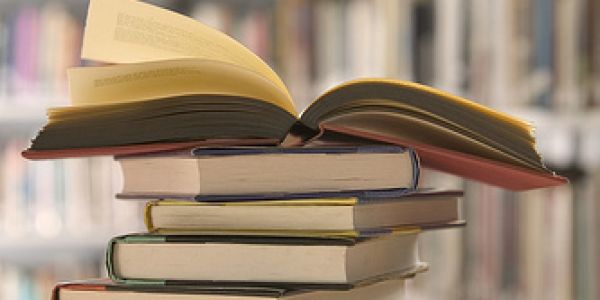- HOME
- INTRO TO THE FORUM
- USE AND MISUSE
- BADLY WRITTEN, BADLY SPOKEN
- GETTING
TO KNOW ENGLISH - PREPARING FOR ENGLISH PROFICIENCY TESTS
- GOING DEEPER INTO ENGLISH
- YOU ASKED ME THIS QUESTION
- ADVOCACIES
- EDUCATION AND TEACHING FORUM
- ADVICE AND DISSENT
- MY MEDIA ENGLISH WATCH
- STUDENTS' SOUNDING BOARD
- LANGUAGE HUMOR AT ITS FINEST
- THE LOUNGE
- NOTABLE WORKS BY OUR VERY OWN
- ESSAYS BY JOSE CARILLO
- A Unified Approach To The Proper Use Of Punctuation In English - II
- A Unified Approach To The Proper Use Of Punctuation In English - III
- Steeling Ourselves Against Common Subject-Verb Disagreement Pitfalls
- The Appropriate Way To Position Subordinate Clauses And Phrases
- Please Don’t Wish Me ‘More Power!’
- Let’s Say Goodbye To Those Irritating English Clichés
- ABOUT JOSE CARILLO
- READINGS ABOUT LANGUAGE
- TIME OUT FROM ENGLISH GRAMMAR
- NEWS AND COMMENTARY
- BOOKSHOP
- ARCHIVES
Click here to recommend us!
ADVICE AND DISSENT
This section features discussions on education, learning and teaching, and language with particular focus on English. The primary subjects to be taken up here are notable advocacies and contrary viewpoints in these disciplines and their allied fields. Our primary aim is to clarify matters and issues of importance to language and learning, provide intelligent and useful instruction, promote rational and critical thinking, and enhance the individual’s overall capacity for discernment.
10 game-changing books on higher-education teaching, learning
English professor James M. Lang firmly believes that if every teaching faculty member could find the time to read one or two great books on teaching and learning every year, they would collectively serve their students much better than they already do.

Lang, the director of the Center for Teaching Excellence at Assumption College in Worcester, Massachusetts and author of Cheating Lessons: Learning From Academic Dishonesty (Harvard University Press, 2013), says that a number of books on teaching and learning in higher education have shaped or reshaped his teaching in some substantive and practical way. He considers 10 of those books as deserving a wide readership among faculty members, with any one of the books representing a great place to start or to continue their professional development.
The 10 books are as follows:
1. What the Best College Teachers Do, by Ken Bain (Harvard University Press, 2004).
2. Make It Stick: The Science of Successful Learning, by Peter C. Brown, Henry L. Roediger III, and Mark A. McDaniel (Harvard, 2014).
3. How Learning Works: 7 Research-Based Principles for Smart Teaching, by Susan A. Ambrose, Michael W. Bridges, Michele DiPietro, Marsha C. Lovett, and Marie K. Norman (Jossey-Bass, 2010).
4. Why Don’t Students Like School? A Cognitive Scientist Answers Questions About How the Mind Works and What It Means for the Classroom, by Daniel T. Willingham (Jossey-Bass, 2009).
5. The Art of Changing the Brain: Enriching the Practice of Teaching by Exploring the Biology of Learning, by James E. Zull (Stylus, 2002).
6. Teaching Naked: How Moving Technology Out of Your College Classroom Will Improve Student Learning, by José Antonio Bowen (Jossey-Bass, 2012).
7. Mindset: The New Psychology of Success, by Carol S. Dweck (Ballantine, 2006).
8. How College Works, by Daniel F. Chambliss and Christopher G. Takacs (Harvard, 2014).
9. Flow: The Psychology of Optimal Experience, by Mihaly Csikszentmihalyi (Harper Perennial, 1990).
10. Cheating in College: Why Students Do It and What Educators Can Do About It, by Donald L. McCabe, Kenneth D. Butterfield, and Linda K. Treviño (Johns Hopkins University Press, 2012).
Lang discusses the 10 books and his encounter with each of them in some detail in an article that came out recently in the June 11, 2014 issue of the Chronicle of Higher Education.
Read James M. Lang’s “Top 10 Books on Teaching” in the Chronicle.com now!
Click to read responses or post a response
View the complete list of postings in this section
(requires registration to view & post)





